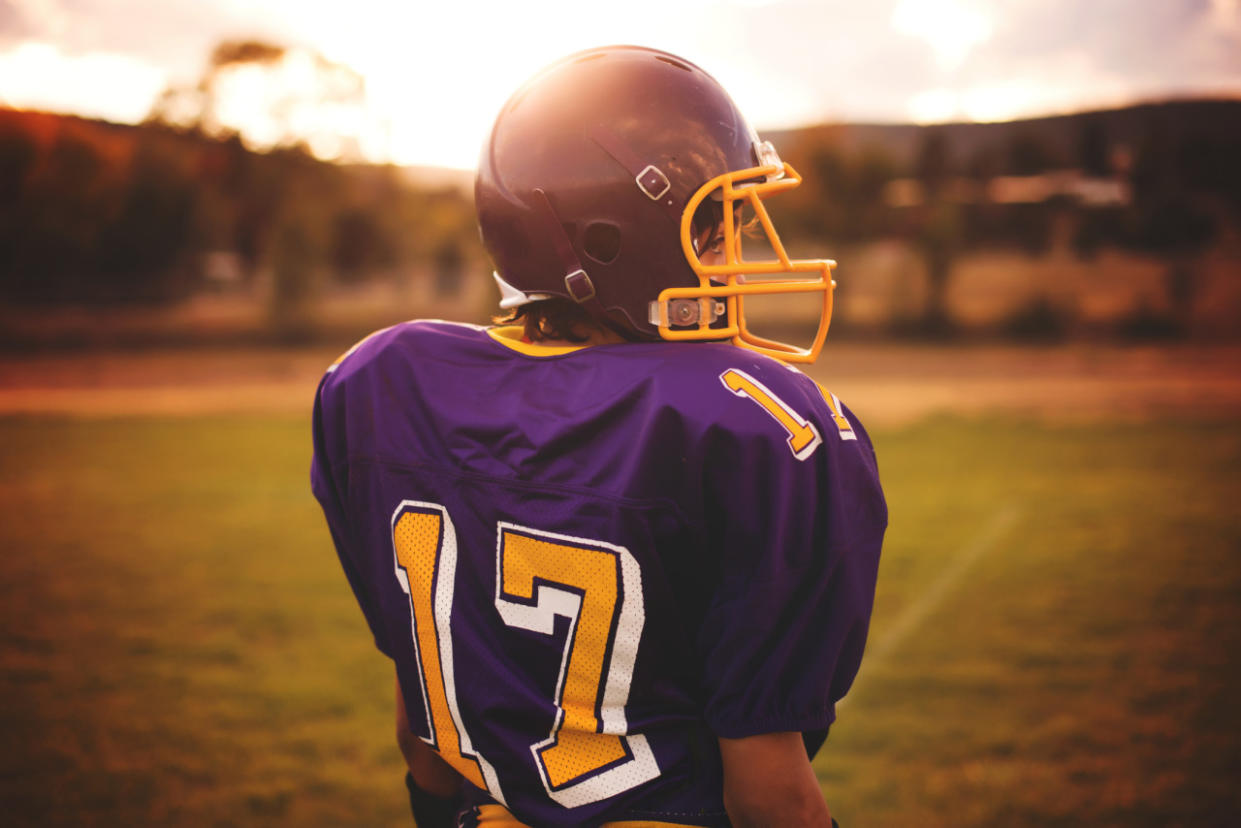Millions Will Watch the Super Bowl — But Is the Football Generation Ending?

One NFL player after another — from former Raiders quarterback Ken Stabler, 69, who died in July 2015, to 27-year-old Giants safety Tyler Sash, who died two months after Stabler — has been diagnosed with chronic traumatic encephalopathy (CTE), a degenerative brain disease caused by repeated trauma. The New York Times reports that well over 100 football players, including several Pro Football Hall of Famers, have CTE so far.
More attention than ever is being paid to the serious ramifications of repeated concussions. Will Smith’s recent film, “Concussion,” about NFL football player and CTE-sufferer Mike Webster, put the disease in the spotlight. With 189 million Americans expected to tune in to the Super Bowl on Sunday, parents who watch the game may be asking themselves, “Should my kid play football? Is it safe?”
STORY: NFL Star Spends Season as Substitute Teacher at Son’s School
Corey Andres, a sports and recreation expert, says heightened awareness about the risks of football may have an effect on the number of kids participating in the sport. “It may lead to a decline in kids playing football,” Andres tells Yahoo Parenting. “It might delay involvement in the sport for some. I have a son turning 8 soon and he’s been asking about when he can play, but I don’t know if we’re ready. When it comes to protecting our children, we’re going to take that seriously.”
Andres points out that more people are playing football year-round, rather than for just a season, which only increases the chances of getting hurt. “If you’re doing a contact sport for more than a season of the year, you’re going to increase the chances of injury, including head injuries,” he says.
So what can parents do to protect their kids who want to play youth football? Sign them up for non-contact flag football, which typically takes kids ages 4 to 11. “You can still participate in football, but it doesn’t necessarily have to be tackle or padded football,” Andres says. “Flag football is a good one for younger kids and is a great way to learn the game. Your child can still benefit from the skills and strategies of playing an organized team sport.”
STORY: A High School Quarterback Dies After a Game, Raising Tough Questions
When it comes to contact football, Andres recommends that parents do their homework. “Start by asking some questions about how the coaches are trained,” he suggests. “NFL has the Heads Up Football program to teach safety. Coaches can get certified through that organization. Ask questions about how often they have contact in practices. You might have the potential for coaches thinking, ‘These kids are all padded up; let’s have fun and bang them around.’ It’s really not a good way to approach it. High school and college football teams are decreasing contact in practices. Also, take a look at the equipment being provided to the kids. Is it in good repair and properly maintained?”
Andres also recommends having age-appropriate discussions with your child about the risks associated with the sport, and how to identify whether someone is injured. “If they see a hit that looks pretty serious, talk to them about the signs and symptoms of a concussion so they can report it,” he says. “It takes the old ‘toughness’ mindset out of the game — of playing and fighting through an injury — and says, ‘Your health is more important than these next couple of minutes or the next three weeks of games.’”
(Photo: Getty Images)
Please follow @YahooParenting on Facebook, Twitter, Instagram, and Pinterest. Have an interesting story to share about your family? Email us at YParenting (at) Yahoo.com.


